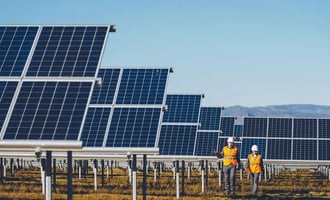As of January 1, 2025, Chicago has achieved a monumental milestone: becoming one of the largest...
Companies are falling behind on their emission reduction goals and what they can do about it
Companies are actively working to reduce their emissions, but unfortunately, the pace at which they are doing so is not sufficient to meet the emission reductions goals they have set for themselves. What factors are contributing to this lag in progress?
A recent CDP report sheds light on the situation, revealing that nearly half of the companies they surveyed have not yet adopted renewable energy sources as part of their operations. While 37% of these companies have made a commitment to achieving net zero emissions by the year 2050, a mere 18% are currently on track to meet this target. The key takeaway from this data is that the majority of companies are progressing too slowly to meet their deadlines, missing out on significant opportunities to speed progress by adopting renewable energy solutions into their strategies.
Despite the remarkable growth observed in the renewable energy market over recent years, renewable energy certificates (RECs) remain underutilized by many organizations. These certificates are not only practical and effective, but also serve as a valuable tool for companies aiming to reduce their Scope 2 emissions (to indirect emissions from the consumption of purchased electricity, steam, heating, and cooling).
At Innovo, we are at the forefront of transforming the way RECs function. Our approach is to make them more efficient, cost-effective, and user-friendly, enabling companies to seamlessly incorporate them into their sustainability plans. By making REC procurement and settlement frictionless, more companies can utilize them in their sustainability plans, realizing net-zero at a much faster pace.
Embracing the transition to renewable energy is not merely a necessity for environmental reasons; it also represents a strategic business decision that can yield substantial benefits. Together, let’s work towards bridging the existing gap, driving significant and impactful change, and ultimately achieving the goal of net zero emissions.



